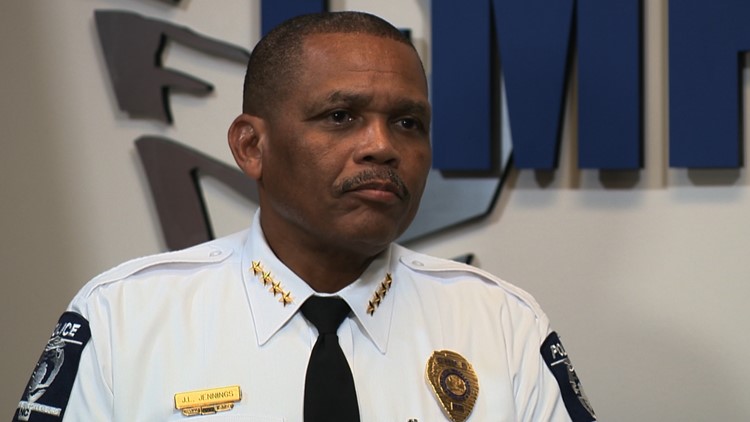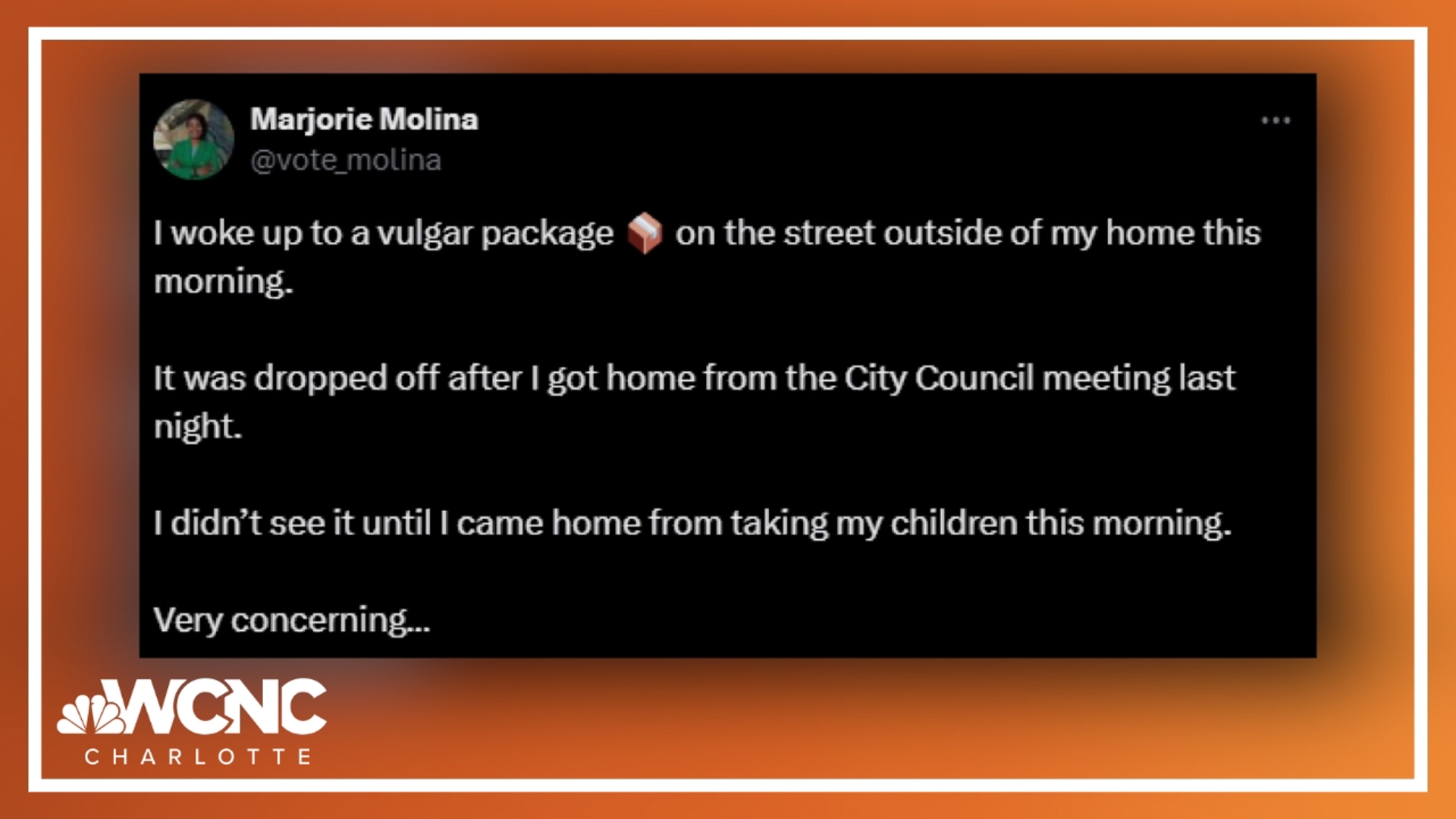CHARLOTTE, N.C. — Charlotte-Mecklenburg Police Chief Johnny Jennings spoke to reporters Wednesday about a video that shows a CMPD officer repeatedly punching a woman who was lying on the ground.
Jennings' comments came one day after he issued a statement about the incident he called, "hard to watch."
The video, which went viral on Instagram, shows at least four CMPD officers restraining the woman on the ground while a fifth officer was punching her multiple times. It happened just after 2 p.m. Monday near the intersection of South Tryon Street and West Arrowood Road.
"To everyone and to our community, I get it," Jennings said Wednesday. "I understand the outrage, I understand the emotions that come when you look at a video that involves an officer who is punching a female who we're trying to make the arrest and subdue. I understand that."
A second video obtained by WCNC Charlotte showed the woman being searched before she was put inside a patrol car. The incident started when an officer saw two people smoking marijuana at a bus stop, according to Jennings. From there, the situation escalated and the woman allegedly punched an officer in the face.
"I had the opportunity to view this video, and it is not easy to watch," Jennings' initial statement said. "I never want to see an officer, much less one of my own, involved in a situation like this."
Corine Mack, the president of the Charlotte-Mecklenburg NAACP, said the video immediately took her back to previous violence incidents involving police.
"It was triggering," Mack said Tuesday. "It reminded me of George Floyd and immediately I began to weep."
Jennings acknowledged that community members may compare the incident to other high profile cases involving police.
"When you do add the race factor into all this, it does heighten it, because I think that we've seen historically, not just in Charlotte but across the country, the mistreatment of Black and brown people throughout the country by police," Jennings said Wednesday. "That's what people look at and causes concern."
The woman had bruises and scratches on her face, according to the police report. Mack said she's concerned about the woman's well-being after the incident.
"That level of abuse is devastating," Mack said. "If I was traumatized sitting at home, imagine what she was feeling, how she's still feeling?"
When asked about the injuries to her face, Jennings said he believes it happened during an initial struggle, but that the officer's body camera was "knocked off" at the time, and you can barely see it. Jennings said that will be part of the investigation. A CMPD news release says the officers acted in accordance with North Carolina's use of force law, claiming the officer who punched the woman was hitting her in the thigh to gain control and prevent further assault.
"I did see the bruises on the side of her face, it is consistent with either a punch or an abrasion," Jennings said. He said he believes the officer reacted after he was punched by the woman.
Jennings also confirmed CMPD's attorney has filed a petition with the court to release any body camera footage related to the incident. In North Carolina, a police officer's body camera video cannot be released without a judge's authorization.
"I watched the body worn camera footage and believe that it tells more of the story than what is circulating on social media," Jennings wrote in his statement on X. "The public deserves to view this footage as well."
Jennings has asked the community for patience during the investigation.
"Let's not lose sight of the big picture," Jennings said.
He asked the community to reflect on the work the department has done since 2020.
"I don't want our community to feel like that's what happens here in Charlotte-Mecklenburg, and we've made some great strides over the last three or so years since 2020, we've progressed," Jennings said. "We've changed a lot of policy."
Charlotte Mayor Vi Lyles echoed that sentiment when speaking to WCNC Charlotte.
"I hope that we have earned enough trust in this community that they can wait for us to take all of the information, put it together, and assess it and decide what's next," Lyles said.



